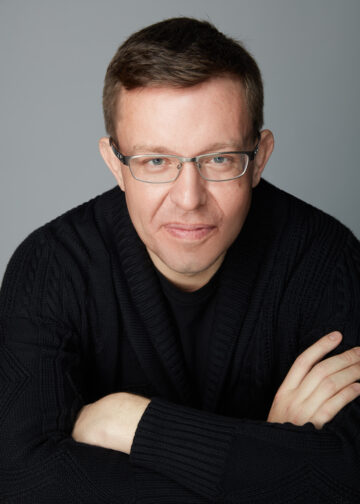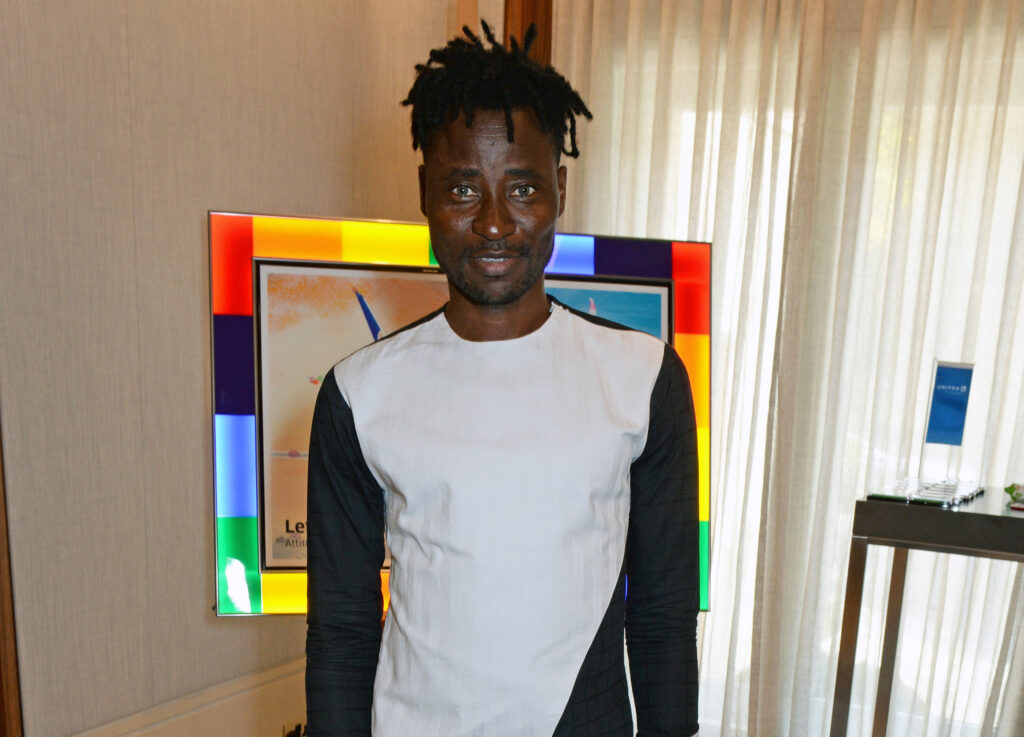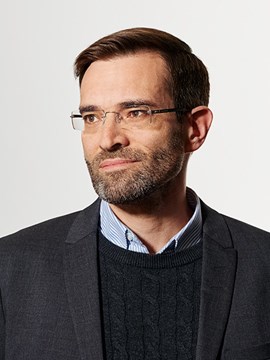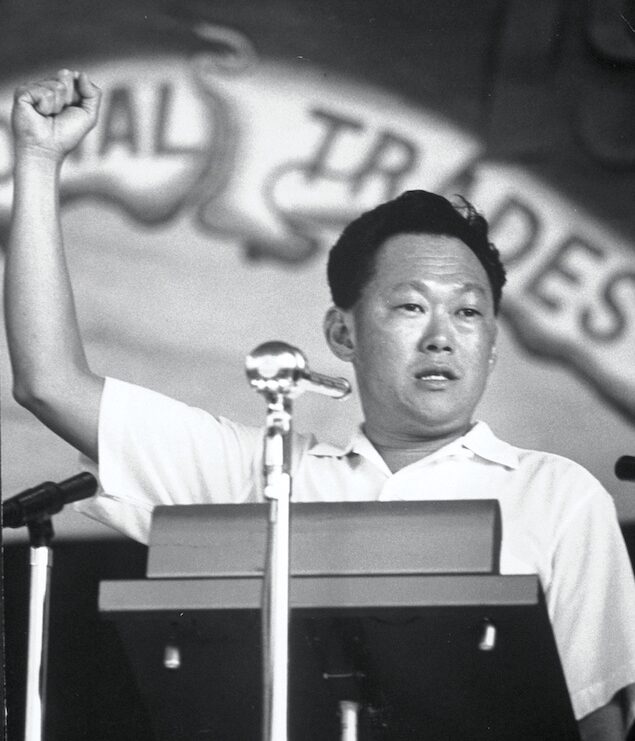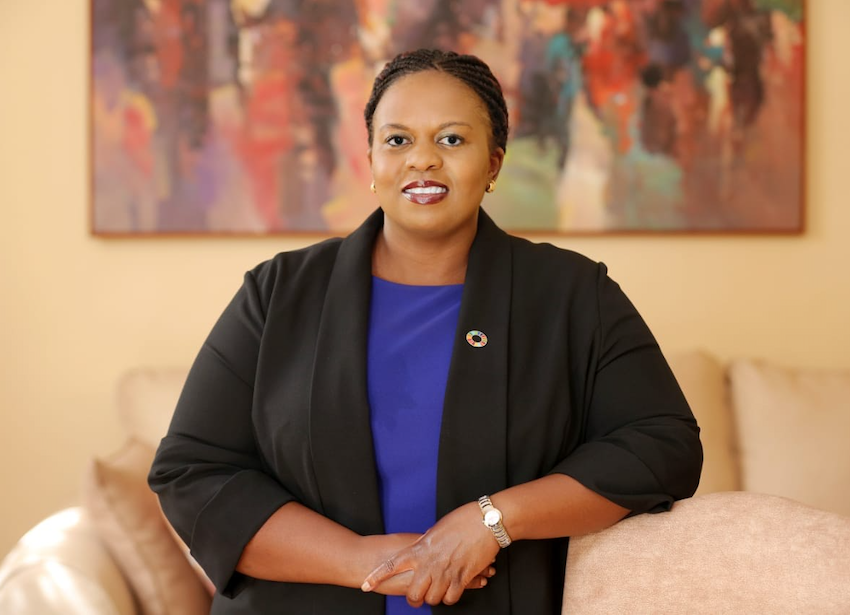Now a UK citizen, Nigerian gay activist Bisi Alimi draws on his experiences to battle inequality on all fronts—and he has a message for business.
Social activist Bisi Alimi came to London as an exile from Nigeria after an attempt on his life. In England, as a member of both the Black and the LGBT+ communities, he has become a sought-after speaker and well-known advocate in the fight for equal rights and opportunity in the face of entrenched social biases. He is currently a UK citizen, the Executive Director of Bisi Alimi Foundation and a co-founder of Rainbow Intersection and Kaleidoscope Trust. In June of 2020, Brunswick’s Jon Miller hosted a webinar on LGBT+ issues for the firm’s employees and guests, with Bisi as the featured guest. He spent an hour with us, fielding questions from Jon and the audience, and gave us some insight into his struggles, his motivations and his core beliefs. What follows is an edited version of his remarks.
I was born in Lagos, Nigeria. I grew up in one of the few slums in Lagos. I come from a very, very poor background. I also come from a very mixed religious family. My father is a Muslim, and my mother is Christian. I’d either have to go to church or go to the mosque.
At a very young age, I knew that there was something not “right” about me—putting that “right and wrong” in quotes, because it depends on who is saying it. I knew about my sexuality. I kissed a boy when I was 11. That was when I had my Katy Perry moment: I kissed a boy, and I loved it.
My parents are not very well educated. So the concept of sexuality was not very clear to them—this whole gay thing. But my mother, reading from the Bible, knows that a man shall not lay with another man as he lays with a woman. And they’ve been told that this is abnormal, this is evil.
When I was in school, I met other people who were like me. There were four of us who came together, and we became very good friends and we’re still very good friends even now. When I was 15, I was exposed to an extremely aggressive form of Christianity that made me question my future in terms of, if I die now, what happens to me?
That was a pivotal moment. When I was 16, I came out to my friends in church. I’d become a born-again Christian by then, so I came out to my friends in church, and I told them about these feelings that I have. And they supported me, introduced me to a pastor. By the time I was 17, I made a first attempt at suicide. I had become extremely damaged. I hated myself, I hated things around me. I became extremely destructive.
When I was 18, I went to my first gay party in Lagos. That also opened my eyes and increased my conflict. On the one hand, this is who I am, this is so beautiful. But on the other, I cannot be like this, because I will go to hell.
I also had to face the reality of AIDS. I lost a lot of my friends to AIDS in Nigeria. I was very sure at one point I was going to die as well. I was diagnosed in 2004 when I was 29. I had studied theater arts and I had a break in my acting career. I found myself on TV, acting. It was what I had always wanted. And then the media came and they wanted to know all about me. The pressure was so much—finally, I came out on national television, in Nigeria, making me the first person to ever do that. I lost all my jobs. I lost everything. Nobody was going to give me a script or put me on TV anymore. So I became an activist.
Suddenly, I’m at the forefront of being open, being out and advocating for LGBT rights. That got me into trouble with the government. By 2007, I escaped an assassination attempt. It was very clear to me that I needed to leave the country. So I left Nigeria in April of 2007 and came to the UK where I claimed asylum.
“I came out on national television, in Nigeria, making me the first person to ever do that. I lost all my jobs. I lost everything.”
Now I’m a British citizen, and I’m using the opportunities that I have at a second chance in life to make sure that what happened to me will never happen to someone else in Nigeria. However, being in the UK has its own challenges.
I always tell people that I was never Black until I came to the UK. I have stopped talking to Black Africans about race, because the reality is that Black Africans don’t get race. Blackness, as seen in the Western world—whether in Europe or in America—is not about the color of the skin. It’s about an experience.
I became Black in the summer of 2007. Walking from the university, I got to my street and I saw police cars, there were a lot of policemen around. They stopped me. “Oh, good afternoon. Someone committed a crime here. The description that we have fits you.” I was slim, even more than I am now. I used to cut my hair, so it was short. I’m tall, about 5’11”. They took my name, they took my fingerprints, they took my telephone number, and they told me they would be in touch with me. I had no idea what was going on, but I thought, innocently, that they were doing their job, and I even said thank you to them.
A little further away was another Black man, short, round, with dreadlocks. He stopped me, and he said, “What happened between you and those police officers?” I told him, “a crime happened, the description fits me, and they’ve taken my fingerprints.” And the man started laughing. I said, “Why are you laughing?” He said, “Because they told me the same. And you don’t look like me.”
A few years later, I shared the experience with my Black gay friends in Soho, and one of them laughed and said, “Welcome to being Black.” That was the start of my journey to being Black. Being gay here is so cool, that was a privilege I didn’t have in Nigeria. But then I realized that, oh, there’s another struggle I need to fight: I’m Black. And I’m not just Black now, I am Black and gay.
I don’t have the luxury of a choice. I cannot just confront homophobia and biphobia and pretend racism doesn’t exist. Because racism comes my way. Women of color, they do not have the privilege of saying, this is what I want to go through—to choose to confront misogyny but not racism.
We talk about the fact that it was trans women of color at the 1969 Stonewall uprising in New York City that brought us Pride. But, what were the police doing where trans women of color were hanging out? The root of it was racism. And that’s taken over 50 years for us to be having the conversation that it wasn’t just the clear-cut homophobia that happened at the West Village. It was a mixture of homophobia and racism.
Black Lives Matter is equally becoming a sexist movement in the way that we only highlight the plight of cisgender straight Black men. Nobody is talking about the trans women that have been killed in the US alone this year. Nobody is talking about injustice coupled with poverty and everything that Black trans women, Black trans men and Black LGBT people are facing.
This happens throughout history. Look at Bayard Rustin for instance. He was a Black civil rights activist who organized the March on Washington for jobs and housing. He was a mentor to Martin Luther King Jr., encouraging his pacifist approach. He was the only Black gay man at the head of the movement. And he’s been overlooked since then.
It is time that we spell it out. There are larger issues to be addressed. We have to be very clear what we mean when we talk about racial justice.
The Challenge for Business
I have been seeing very important conversations from businesses on social media talking about Black Lives Matter. But there is a fundamental question we need to ask: Why does it have to take the video of the killing of a Black man on the streets of America for the Western world to come to a realization that Black lives matter? Is it that we didn’t recognize that Black lives mattered before George Floyd? And what is that doing to us now? What is that doing to our psyche? Is it letting us understand and break down the issue around institutionalized lending discrimination? Or LGBT refugees being refused asylum, or why mental health issues are so prevalent among Black people?
We need to not just put up something that says “Black Lives Matter.” We need to recognize the role that we are playing, historical roles that we have played in judging people, not by what they can do, but by who they look like. We put them in a box and deny them the opportunity to contribute to the commonwealth of humanity.
People try to attribute this to “unconscious bias.” I say there is nothing unconscious about bias. “Oh, I don’t know that I’m doing what I am doing.” I don’t believe it. I believe there is institutional racism and people buy into it because it protects them. People turn a blind eye to it, because they benefit from it. They might not like what is going on. But for as long as it keeps their interest in play, they’re not going to condemn it.
Your company comes to me and says, “We want to make a statement about Black Lives Matter.” I say, “OK, how many Black people do you have at the entrance level? Then, how many do you have at your mid-management level? What happened between entrance level and the mid-management level that Black people are dropping out? And then, how many do you have at your senior management level?”
What has been coming back over and over and over again is that at the entry level you have more women and minorities. By the time they get to the middle-management level, the white men are overtaking them. And by the time they get to the senior management level, the women are missing, the Blacks are missing. This structure is set up like running a race with obstacles on the way, while your opponent is running the same race on the smooth ground. And you have to finish at the same time.
In a study in the UK, they say it is not just the area where you were born that determines your future; the color of your skin from birth determines your future. If I’m not able to go to particular schools, I can never be better. No matter what I know. Our kids in inner city London who went to London South Bank University, are excellent compared to students who went to Cambridge. But the reality is the child from Cambridge is likely to get a job before a child from London South Bank University. Who has the better chance to go to Oxford? Those are the institutions that we need to break.
I am seeing many companies doing blind recruitment. It has gotten more Black people into employment. It’s a shame that that has to happen, but it’s happening. But then how do you make the workplace conducive for me as a Black person, considering the microaggression that I have to face? The questions around my ability that I have to prove every day that I am here?
“I’m excited to question the future, to challenge the future, and to make sure that I work hard to make the future possible—this is where my optimism lies.”
Blind recruitment is a step, but we also need to have a very, very honest conversation around the fact that we got it wrong and we want to get it right. In the process of getting it right, we will get it wrong at some point. And it is OK, because it’s a journey. This journey started 400 years ago—400 years of injustice. We don’t have a magic wand. It’s not going to happen in 20 years. It’s a journey. We’re not perfect, but we’re ready to go all the way.
“Positive discrimination” is a good example. I’ll make something very clear. There is no “positive” discrimination. I don’t believe in that word at all. It’s a recognition of wrong—that is what you’re trying to do. You are recognizing that you have done wrong in your recruitment, in promotion, in salary, in education and in everything in our politics. We’ve done wrong. In the process to right that wrong, we have to take an action that will be seen as drastic, but it helps to balance the equation. There’s nothing positive about that—it doesn’t move the needle back to zero. But it’s an awareness of wrong and I always encourage people to start.
What is stopping a Black boy, a top student, from going to Oxford? There is a quota: In a year, Oxford will enroll just so many students. Parents from rich families have paid their way through. Those people help finance Oxford, so they will have their own quota. They will be predominantly white families. And families that have been to Oxford before, mostly white, they will have their own quota.
All these quotas favor a white person. If you want Oxford to reflect the multicultural society that the UK is becoming, then you will have to create a space at the table for Black and Asian kids to also be there. Again, this is righting the wrong.
Looking at the work to be done, I draw my strength from the words of Archbishop Desmond Tutu, who says he is a prisoner of hope. I’ve seen what has happened in the last 50 years. When it comes to the issue of race, I don’t think our generation and the next generation coming will solve the issue. But I think we are solving it. I mean, to make the NFL—the organization that sacked Colin Kaepernick and pretended as if nothing happened—to make them release a statement and issue the words, “Black Lives Matter,” is enough to give us hope.
I’m excited to question the future, to challenge the future, and to make sure that I work hard to make the future possible—this is where my optimism lies. Optimism could be very passive. “Oh, I’m optimistic about tomorrow, so I’m going to go to bed.” No. I’m optimistic about tomorrow, so I’m going to challenge the system. I’m going to pull at the system. I’m going to dismantle the system and restructure the system so that it works for everyone.
My activism is not for Black people. My activism is for humanity. Because when you and I, irrespective of the color of our skin, or how we love, or our gender, can contribute to the goodness of the world, then you and I can take out of the goodness of the world as well.
So it is not about, “I want Black people to be free.” That is my focus, but it’s about, “I want human beings to recognize the humanity in one another.” And for me, that is what gets me out of bed. Because I know it’s possible. I don’t think human beings are animals. We can make change happen. And we can create the world that we want to see. We just need the motivation for it. I strongly believe that we can do it.
More from this issue
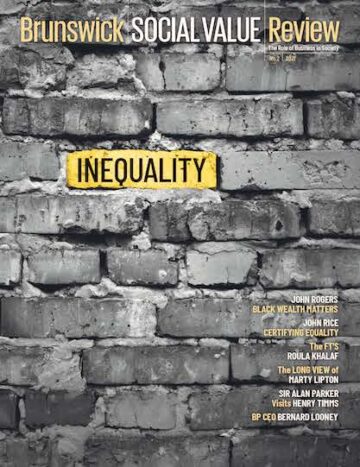
Inequality
Most read from this issue
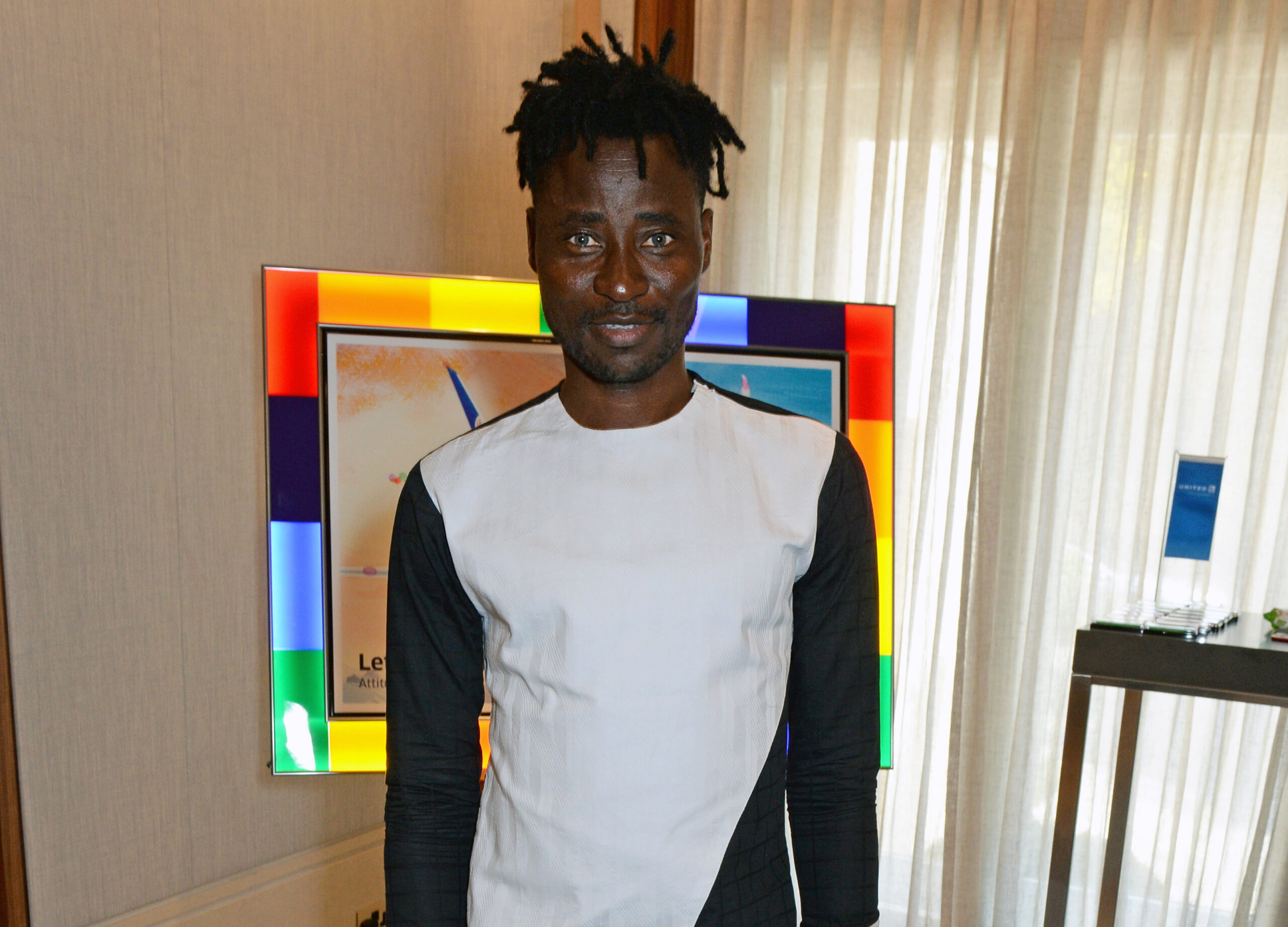
Activism for Humanity
